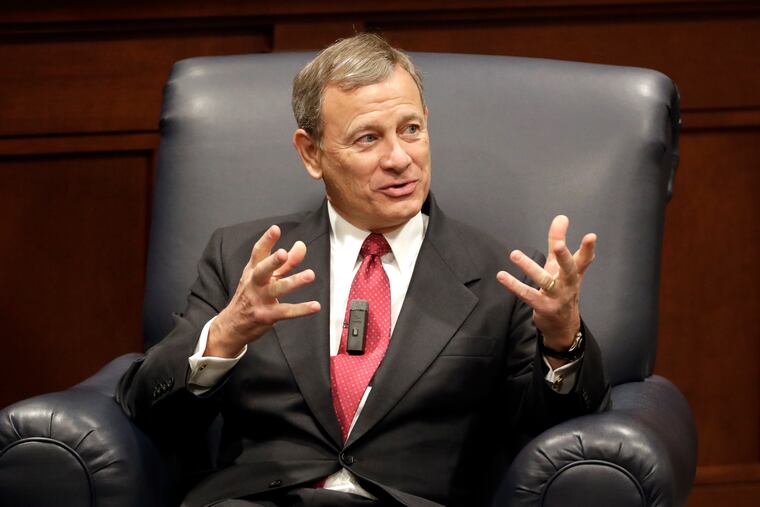John Roberts isn’t yet ready to ‘jolt’ the legal system on abortion | Opinion
Roberts demonstrated that he is wary of uprooting the court’s precedents on abortion, at least at this early stage of litigation.

Chief Justice John G. Roberts Jr. has done it again — disappointed conservatives, that is. On Thursday night, Roberts joined the Supreme Court’s Democratic appointees in blocking enforcement of a Louisiana abortion law.
The decision to block the law may or may not signal how the court will rule in the future on whether the statute is constitutional. But Roberts demonstrated that he is wary of uprooting the court’s precedents on abortion, at least at this early stage of litigation.
That’s not completely a surprise. At Roberts’ Senate confirmation hearing in 2005, a major theme for several members of the Judiciary Committee was whether the nominee would uphold what Sen. Arlen Specter of Pennsylvania called the “super-duper precedent” of Roe vs. Wade, the 1973 ruling that legalized abortion nationwide.
Roberts satisfied Specter, if not other senators who favored abortion rights, by saying: “It is a jolt to the legal system when you overrule a precedent. Precedent plays an important role in promoting stability and evenhandedness. It is not enough — and the court has emphasized this on several occasions — it is not enough that you may think the prior decision was wrongly decided.”
That comment applies to the Louisiana law. Critics argue that it’s indistinguishable from a Texas statute that the Supreme Court struck down in 2016 as an “undue burden” on a woman’s right to abortion. Roberts dissented in the court’s 5-3 decision in that case, Whole Woman’s Health vs. Hellerstedt.
To be sure, at his confirmation hearing, Roberts went on to say that sometimes overruling precedent is “a price that has to be paid.” In the years since, he has been willing to pay that price in important cases such as the 2010 ruling in Citizens United and last year’s ruling in Janus vs. AFSCME, which overturned an earlier ruling that allowed unions to collect collective-bargaining fees from nonmembers.
But the precedents overturned in those cases were 20 and 41 years old, respectively, and one of the traditional justifications for overruling precedents is that they have proved over time to be unworkable. It’s hard to argue that the Whole Woman’s Health decision, which was decided less than three years ago, hasn’t stood the test of time.
It may be that Roberts will be willing to administer a jolt to the legal system if and when the court considers the challenge to the Louisiana law on the merits. But there’s a good chance that even then he will conclude that overruling a very recent precedent is too high price to be paid.
Michael McGough is senior editorial writer for the Los Angeles Times, where this piece previously appeared.